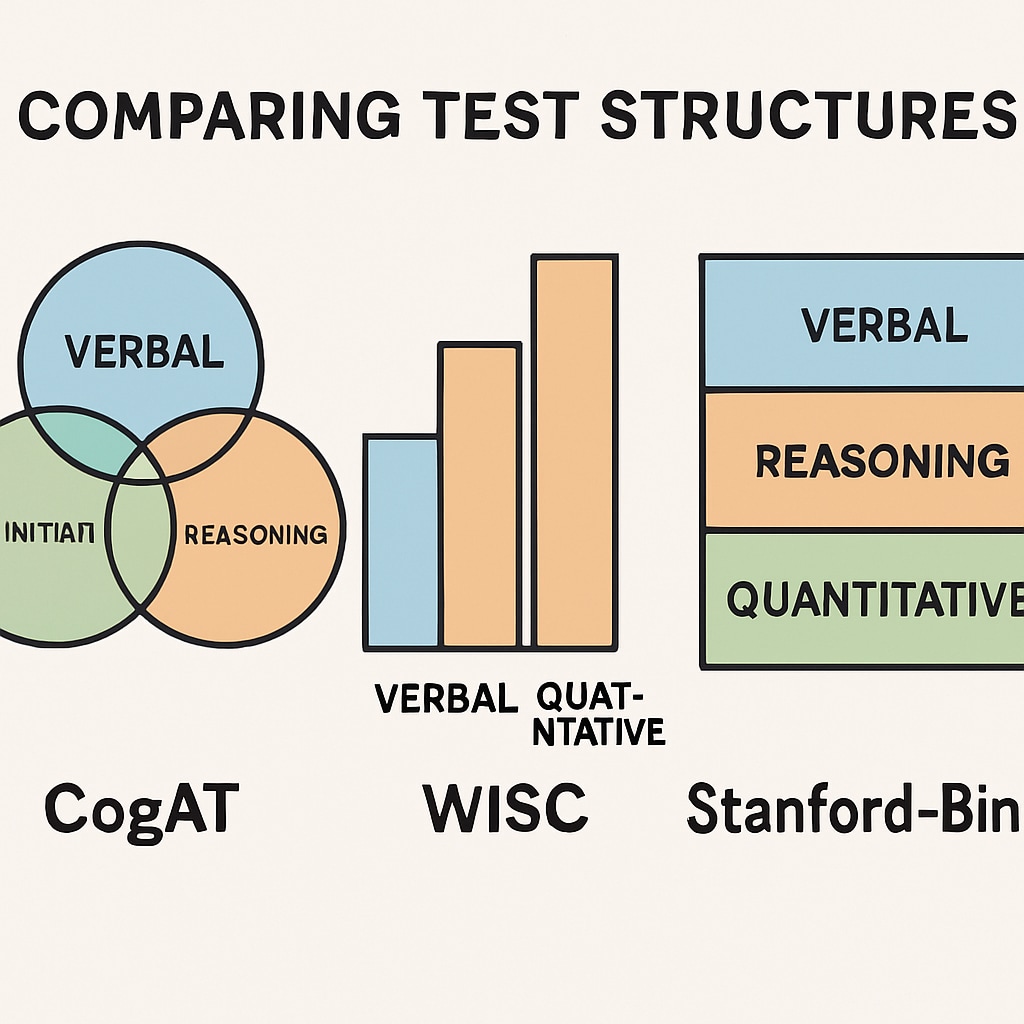For parents and educators seeking to unlock a child’s potential, choosing the right talent assessment is key. Tools like CogAT, WISC, and Stanford-Binet have become the gold standard for evaluating gifted children. Understanding their unique features and strengths can help you make informed decisions about which test is ideal for your child’s needs and educational goals.
Understanding Talent Assessments: Why They Matter
Talent assessments play a vital role in identifying a child’s strengths and abilities. Unlike general academic exams, these tests focus on intellectual potential, problem-solving skills, and creativity. This information helps parents and educators tailor their approach to the child’s development and ensures appropriate placement in gifted programs. However, with multiple tests available, selecting the right one can feel overwhelming.
Three of the most commonly used tools are:
- CogAT (Cognitive Abilities Test): Measures reasoning abilities in verbal, quantitative, and nonverbal domains.
- WISC (Wechsler Intelligence Scale for Children): Assesses general intellectual capacity along with specific cognitive functions.
- Stanford-Binet: A comprehensive IQ test designed to evaluate multiple dimensions of intelligence.

CogAT: A Multifaceted Approach to Talent Identification
The Cognitive Abilities Test (CogAT) focuses on reasoning skills across three domains: verbal, quantitative, and nonverbal. Its primary advantage is its ability to gauge how children think and solve problems rather than what they already know. This makes it ideal for identifying gifted children who may not excel in traditional academic settings.
Key Features:
- Group-administered, making it accessible for schools with large populations.
- Can identify students strong in nonverbal reasoning, often overlooked by traditional IQ tests.
- Widely used for placement in gifted programs.
However, CogAT may not provide as in-depth an analysis as other individual IQ tests like the WISC or Stanford-Binet. For more details on CogAT, visit this Wikipedia page.
WISC: Comprehensive Intelligence Profiling
The Wechsler Intelligence Scale for Children (WISC) is one of the most widely respected tools for assessing intellectual ability. Unlike CogAT, it is administered individually and provides detailed insights into cognitive strengths and weaknesses. The WISC evaluates areas such as verbal comprehension, working memory, and processing speed.
Key Features:
- Offers a Full-Scale IQ score along with subtest scores for specific abilities.
- Ideal for diagnosing learning disabilities or twice-exceptional children (gifted children with learning challenges).
- Requires a trained psychologist for administration, ensuring accuracy and depth.
This test is particularly useful for understanding how a child learns and processes information. For more information on WISC, explore the detailed guide on Britannica.

Stanford-Binet: A Legacy of Measuring Intelligence
The Stanford-Binet test has a long history of assessing intelligence and is often used for highly gifted children. It evaluates five factors of cognitive ability: fluid reasoning, knowledge, quantitative reasoning, visual-spatial processing, and working memory.
Key Features:
- Highly precise, offering an in-depth profile of a child’s intellectual abilities.
- Suitable for identifying extreme levels of giftedness in children.
- Often used for academic and clinical purposes.
However, the Stanford-Binet test requires significant time and resources to administer, making it less accessible than group-administered tests like CogAT.
Which Test Is Right for Your Child?
Choosing the most suitable test depends on your child’s specific needs and circumstances. Here are some guidelines:
- If you need a quick, group-administered test: CogAT is an excellent option.
- If you want a detailed cognitive profile: WISC offers comprehensive insights.
- If your child may be profoundly gifted: Stanford-Binet is a proven choice.
In addition, consider consulting with a qualified psychologist or educational specialist to determine the best course of action. Each child is unique, and understanding their strengths requires a tailored approach.
Conclusion: By selecting the right talent assessment, you can unlock your child’s potential and provide them with opportunities to thrive. Whether it’s CogAT, WISC, or Stanford-Binet, these tools offer valuable insights into your child’s abilities and set the foundation for their future success.


